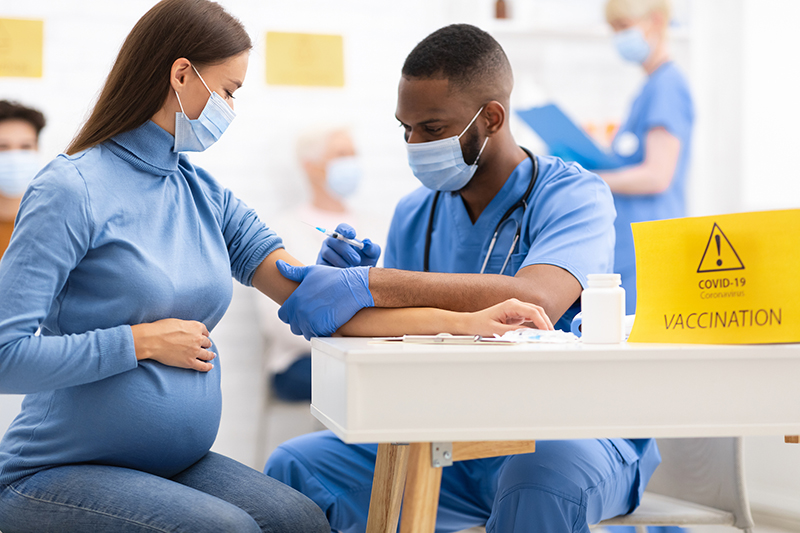Should pregnant and breastfeeding women get the COVID-19 vaccine?

As COVID-19 vaccines are becoming available, many pregnant and breastfeeding women have questions about the risks and benefits of being vaccinated.
Dr. Gloria Too, Assistant Professor of EVMS Maternal-Fetal Medicine, says she recommends the vaccine to her patients, especially to those who are healthcare workers, teachers, or essential workers.
“It can be a challenging conversation, but overall we believe the vaccination is safe for the general population,” says Dr. Too. “Unfortunately, a lot of the vaccine trials did not include pregnant women or lactating women, but several are underway now.”
As for breastfeeding women, Dr. Too says research suggests the vaccine doesn’t impact breast milk. “We don’t suspect it should reach the placenta and cross over. It shouldn’t have any lasting effects, and it doesn’t get into either maternal or fetal DNA.”
Vaccine manufacturers are monitoring people in their clinical trials who became pregnant to see if there have been any adverse effects. There is limited data about the actual risks of mRNA vaccines on a pregnant person and the fetus because they have not been studied before. Therefore, it may be helpful for pregnant patients to have a conversation with their health care provider when deciding whether to get vaccinated.
According to the Advisory Committee on Immunization Practices (ACIP), key considerations pregnant patients can discuss with their healthcare provider include:
- The likelihood of exposure to SARS-CoV-2, the virus that causes COVID-19
- Risks of COVID-19 to them and potential threats to their fetus
- What is known about the vaccine: how well it works to develop protection in the body, known side effects of the vaccine, and lack of data during pregnancy
Experts believe that due to the way mRNA vaccines work, they are unlikely to pose a specific risk for pregnant people. Since mRNA vaccines do not contain the actual live virus that causes COVID-19, a person vaccinated is unlikely to get COVID-19 following receiving the vaccine.
“Ultimately what is the lesser of two evils,” Dr. Too explains. “The coronavirus and the complications of it or the potential for the unknown, which we think the unknown risk are fairly minimal based on what we know about the vaccine.”
If a pregnant person does decide to get vaccinated, they should continue to follow the current guidelines to prevent the spread of COVID-19.
- Wear a mask
- Stay at least six feet away from others
- Avoid crowds
- Wash hands with soap and water for 20 seconds or using hand sanitizer with at least 60% alcohol
- Follow the CDC travel guidance
- Follow quarantine guidance after exposure to COVID-19
- Follow any applicable workplace guidelines in place
CDC and the Food and Drug Administration (FDA) have safety monitoring systems in place to capture information about vaccination during pregnancy and will closely monitor reports.
The Hampton Roads Breastfeeding and Advocacy Team (HR-BEAT) contributed to this report.